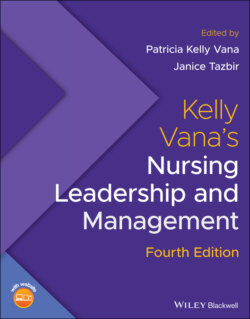Читать книгу Kelly Vana's Nursing Leadership and Management - Группа авторов - Страница 168
Nurse Training Was Inevitable
ОглавлениеNightingale believed in good nutrition, cleanliness, and fresh air. These, she was sure, would put the body in the strongest position to recover. But later nineteenth century scientific advances further necessitated specialized training for nurses. Important early discoveries included anesthesia and, later, antisepsis. Anesthesia for patients undergoing surgery had been known since the 1840s and enabled patients to tolerate complex surgeries. Under anesthesia the muscles were relaxed, the patient wasn't in danger of neurogenic shock from pain, and there was time for delicacy and skill.
Likewise, use of antiseptic techniques during and after surgery hugely increased the likelihood that patients would survive surgery. Hungarian obstetrician Ignaz Semmelweis is rightly honored for discovering that, somehow, washing hands with a chlorinated lime solution before assisting at childbirth drastically reduced the incidence of puerperal fever. But this was in the mid‐nineteenth century and the germ theory of disease had not yet gained widespread scientific support. Even Nightingale was not a believer in microorganisms until her later years. Joseph Lister was the Scottish surgeon who, apprised of Louis Pasteur's assertions that “tiny little organisms floating in the air and settling on organic matter caused its decay” (cited in Goldman, 1987, p. 8), took action. Lister instituted a process he termed “antisepsis”—that is, warding off sepsis before it started—using carbolic acid. In 1869, Lister was appointed Chair of Clinical Surgery at Edinburgh University and his methods, with the resultant drop in patient mortality, gained international acceptance (Goldman, 1987).
Additional factors that demanded trained nurses included the rapid industrialization of the nineteenth century, which caused immense social upheaval. Work environments changed and became increasingly dangerous. Many women had to work outside the home, leaving children, the elderly, and the sick to manage as best they could. Meanwhile, enhanced communication through newspapers, telegrams, and even the telephone informed society of scientific and medical advances.
